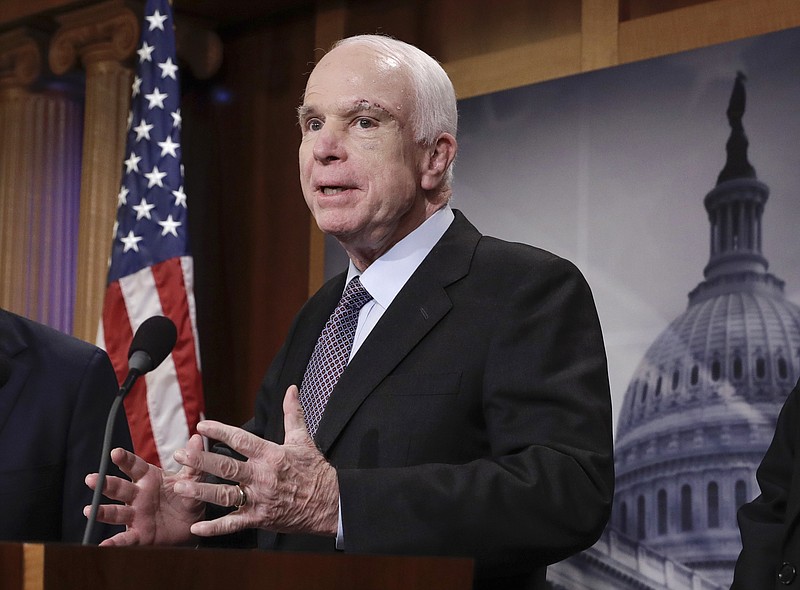WASHINGTON (AP) - In a rebuke of President Donald Trump, Republican Sen. John McCain declared Thursday that "America is adrift in Afghanistan" as he promoted a war strategy that would expand the U.S. counterterrorism effort and provide greater support to Afghan security forces.
McCain, chairman of the Armed Services Committee, said the U.S. needs to put strict conditions on continued assistance to Afghanistan, and require the Kabul government to demonstrate "measurable progress" in curbing corruption, strengthening the rule of law and improving financial transparency.
"Nearly seven months into President Trump's administration, we've had no strategy at all as conditions on the ground have steadily worsened," said McCain, a leading voice in Congress on national security matters. "The thousands of Americans putting their lives on the line in Afghanistan deserve better from their commander in chief."
McCain said bluntly, "We are losing in Afghanistan and time is of the essence if we intend to turn the tide."
The Arizona lawmaker said he'll seek a vote on his "strategy for success" in Afghanistan when the Senate returns in September and takes up the annual defense policy bill.
His plan calls for sending in more U.S. combat forces, although he doesn't say how many. But McCain wants them to be less constrained in carrying out missions against the Taliban, al-Qaida, a growing Islamic State affiliate and other extremists.
The plan, McCain said, is to "deny, disrupt, degrade, and destroy the ability of terrorist groups to conduct attacks against the United States, its allies, or its core interests."
Frustrated by his options, Trump has withheld approval of a long-delayed strategy as he searches for a plan that will end the stalemate and allow U.S. forces to pull out of America's longest war. It's been nearly 16 years since the United States invaded the then Taliban-ruled country in response to the al-Qaida attacks of Sept. 11, 2001.
The United States has about 8,400 troops in Afghanistan. Trump has so far resisted the Pentagon's recommendations to send almost 4,000 more to expand training of Afghan military forces and bolster U.S. counterterrorism operations. The deployment has been held up amid broader strategy questions, including how to engage regional powers in an effort to stabilize Afghanistan.

